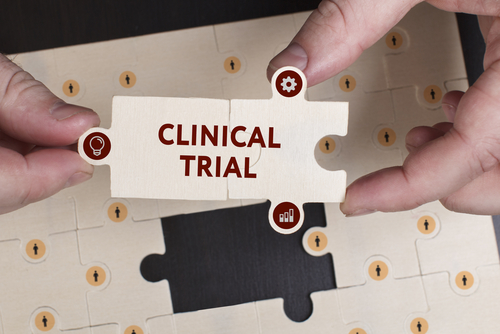Healey Center at Mass General Launches First ALS Platform Trial with Five Candidate Treatments
Written by |

The Sean M. Healey & AMG Center at Mass General has chosen five “promising” candidate treatments from among 30 applications to test in its first platform trial for amyotrophic lateral sclerosis (ALS).
The platform trial — a type of a clinical study that tests the efficacy of multiple therapies simultaneously — is designed to advance effective and innovative treatments for people living with ALS. Newly developed clinical treatments can be added into the trial as it progresses to reduce the time from identification of a promising new therapy to its testing.
“The Healey Center brought together top leaders from around the world to boldly re-think how we design ALS trials, to create a groundbreaking platform trial program, and deliver compassionate care,” Merit Cudkowicz, MD, MSc, director of the Sean M. Healey & AMG Center for ALS at Mass General, said in a press release.
This clinical trial model has shown success in finding treatments for certain types of cancer. The unique trial design helps advance development of treatments by letting researchers assess more medicines, increase patient access to clinical trials, and decrease costs by rapidly determining the effectiveness of numerous treatments.
“This approach cuts the time to find an effective treatment in half, decreases costs by a third or more, and is supported by our patients, the FDA, ALS clinicians and scientists and our pharma colleagues,” Cudkowicz said.
Join our ALS forums: an online community especially for patients with Amyotrophic Lateral Sclerosis.
Further, because separate treatments are being tested within the same infrastructure and a similar master protocol, results from all subjects in all placebo groups can be combined together — leading to significantly higher statistical power for each study and therefore, more robust data.
In addition to testing different therapies, the HEALEY ALS Platform Trial also will include several promising biomarkers and outcome measures aimed at developing new tools to evaluate the effectiveness of ALS therapies.
“We are thrilled to be in a position to test several treatments for ALS and, at the same time, facilitate the development of breakthrough biomarkers that can more quickly predict therapeutic success,” said Sabrina Paganoni, MD, PhD, a faculty member at the Healey Center.
Prior to initiating this clinical trial, the Healey Center announced it was looking for the best ALS treatments preparing to enter clinical trial stages. The center received approximately 30 applications from 10 countries.
A group of leading ALS scientists and members of the Healey Center Science Advisory Committee picked what they considered to be the top five most promising treatments. Initially, the platform trial will be launched with three therapies, and two more will be added shortly after.
The experimental treatments include Ra Pharmaceuticals’ Zilucoplan, Biohaven Pharmaceuticals‘ Verdiperstat, Clene Nanomedicine’s Bioenergetic Nanocatalysis (CNM-Au8, nanocrystalline gold), Prilenia‘s Pridopidine, and Implicit Bioscience’s IC14 immunotherapy.
Partners of these five chosen companies are collaborating with the Healey Center Trial Design Team, as well as the Northeast ALS Consortium (NEALS), to design the HEALEY ALS Platform Trial.
NEALS is an international non-profit group composed of 128 research sites working together to conduct clinical research in ALS and other motor neuron diseases.
“The investigators in NEALS are enthusiastic about this approach,” says Timothy Miller, MD, PhD, co-chair of NEALS, and a professor at Washington University School of Medicine. “The ability to test multiple drugs at one time will move us more quickly toward the goal of finding a treatment for ALS.”





